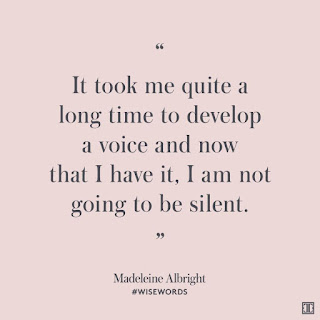Environments of Betrayal: What Victims Need To Know and Do
Tragically, over the years we have heard about horrific cases of abuse, trauma, bullying and other acts of violence. Typically, these inhumane injustices are carried out within familial systems or are random crimes committed by disturbed perpetrators. However, in my lifetime and over the past several decades, we are hearing more and more about assault and abuse cases within professional organizations, as well as social, political, and spiritual institutions where the culture of bullying and of extreme cases of abusive conduct have not only been cultivated and condoned, but they have been concealed by the very leaders and/or members who serve within them.
The documentary, The Invisible War, depicts and details the narratives of numerous military service women and men (representing thousands) who have been attacked and traumatized by fellow military members and/or their superior officers. And within the culture of their military organizations, these brave service members' injuries and injustices are magnified by multiple betrayals imposed upon them by the very institutions in which they have served and have risked their lives.
In 2009, after I spent a great deal of time analyzing, researching, and studying the anatomy of betrayal, my findings were published in a recovery book entitled Breaking Through Betrayal 2nd Edition. As with much of work that I do in clinical psychology, it was critical that I give readers two key concepts when recovering from a betrayal - of any kind:
For the purposes of today's blog, it is my intention to share a couple of key principles about betrayal and how they relate to the victims' degree of injury and impact. There is more information on today's show on W4CY Radio - Environments of Betrayal: What Victims Need To Know And Do. I hope you will take a listen.
So often former clients would say to me, "Holli, I don't know why I feel so betrayed? I thought I was getting past this, but I can't seem to move on." Or, "Holli, I was doing fine, and then....something happened and I feel re-betrayed all over again. What's wrong with me?" This is completely understandable. Let me explain.
The first key to understanding is the following:
1. We feel betrayed because we have invested greatly into someone or something, or we have trusted profoundly into someone or something, or we have believed strongly in someone or something. When that investment is rejected, when that trust has been violated, and/or when that belief has been shattered, we feel betrayed.
Watching the documentary The Invisible War, it is clear that the women and men who shared their stories were extremely passionate about their careers in the military. Several came from military backgrounds where family members had served for years. Most felt the calling to serve and joined with enthusiasm, dedication, and pride.And thus, because of their unwavering commitment to their profession, to their fellow service members, and to their chosen military branch, the victims' degree of injury - physically, psychologically, and emotionally - from their betrayals is deeply embedded and ingrained within the core. It is to be expected that their inner beings are breaking, their foundations are faltering, and their spirits are suffocating.
The second important principle of betrayal is the following:
2. We feel betrayed or continue to feel betrayed because often we are exposed to our betrayer or our betrayal environments, or we are triggered by events/memories/symptoms from our betrayal experience. In other words, if we experience chronic (or on-going) betrayal, or recurrent (or episodic) betrayal, or multiple betrayals, or the manifestations of PTSD from any trauma, we will continue to feel violated.
In The Invisible War, a brave young woman named Kori described her horrific betrayal. She was assaulted by a fellow service member while she was serving in the U.S. Coast Guard. Not only was Kori's face injured during the attack but she was brutally raped. Along with suffering the manifestations of Post Traumatic Stress Disorder, Kori - today - is in constant pain from disk and bone damage done to her face during the attack. Not only must Kori live with these chronic reminders and triggers of her assault, but she is still fighting the VA which continues to decline her medical claims. Her ongoing and multiple betrayals make it even more challenging to move forward and to recover. However, it is possible...
With understanding these two principles about the anatomy of betrayal - how it works - I hope that readers will experience an initial level of healing. Because although the betrayers and the environments in which they cultivate their abusive cultures would like you to believe that you just need to 'toughen up' or 'be woman or a man enough to endure it' or that by 'voicing your betrayal you have turned against them', I want you to know that you have one powerful tool right within you - your truth.
For today's show Environments of Betrayal: What Victims Need To Know And Do
For our women and men who have bravely served in the military (or who are currently serving), please go to Protect Our Defenders for support and healing.
It is within these Environments of Betrayal, that victims are frequently blamed for the aggressive acts imposed upon them, they are seen as being 'less than or cowardly' for not being able to endure the culture of violence, and their personal and professional lives are in jeopardy for speaking out against the very organizations or institutions that have perpetuated these normative abusive behaviors.
Over the past couple of years, our attention has been drawn to high-profile bullying cases within professional sports organizations and educational systems as well as to horrific abuse cases within our spiritual and university institutions. More recently, we are being made aware of the wave of sexual assault, abuse, and rape that is sweeping through our military ranks.Within these Environments of Betrayal, it is a wonder that many victims find if difficult - if not almost impossible - to heal and to move forward with their lives.
 |
| The Invisible War |
In 2009, after I spent a great deal of time analyzing, researching, and studying the anatomy of betrayal, my findings were published in a recovery book entitled Breaking Through Betrayal 2nd Edition. As with much of work that I do in clinical psychology, it was critical that I give readers two key concepts when recovering from a betrayal - of any kind:
First, understanding what they are feeling and why.
Secondly, how to move forward - step by step.
For the purposes of today's blog, it is my intention to share a couple of key principles about betrayal and how they relate to the victims' degree of injury and impact. There is more information on today's show on W4CY Radio - Environments of Betrayal: What Victims Need To Know And Do. I hope you will take a listen.
So often former clients would say to me, "Holli, I don't know why I feel so betrayed? I thought I was getting past this, but I can't seem to move on." Or, "Holli, I was doing fine, and then....something happened and I feel re-betrayed all over again. What's wrong with me?" This is completely understandable. Let me explain.
The first key to understanding is the following:
1. We feel betrayed because we have invested greatly into someone or something, or we have trusted profoundly into someone or something, or we have believed strongly in someone or something. When that investment is rejected, when that trust has been violated, and/or when that belief has been shattered, we feel betrayed.
And, the degree of our investment, trust, or belief is a predictor of our degree of injury or impact.
The second important principle of betrayal is the following:
2. We feel betrayed or continue to feel betrayed because often we are exposed to our betrayer or our betrayal environments, or we are triggered by events/memories/symptoms from our betrayal experience. In other words, if we experience chronic (or on-going) betrayal, or recurrent (or episodic) betrayal, or multiple betrayals, or the manifestations of PTSD from any trauma, we will continue to feel violated.
Remember, the degree of exposure to our betrayer and/or our betrayal environment is a predictor to the degree of injury or impact.
With understanding these two principles about the anatomy of betrayal - how it works - I hope that readers will experience an initial level of healing. Because although the betrayers and the environments in which they cultivate their abusive cultures would like you to believe that you just need to 'toughen up' or 'be woman or a man enough to endure it' or that by 'voicing your betrayal you have turned against them', I want you to know that you have one powerful tool right within you - your truth.
 |
| Claim Your Truths |
Survivors....
- You know your degree of investment, belief and trust....that is your truth.
- You know your degree of exposure to your betrayer and/or your betrayal environment....that is your truth.
- And, you know the degree of impact that the violation of each has had on you....that, too, is your truth.
No one can take that from you....
Now, it is your time to honor your truth and use it as you move forward.
For a step by step process for recovery from any kind of betrayal, consider...Breaking Through Betrayal: And Recovering The Peace Within 2nd Edition
For today's show Environments of Betrayal: What Victims Need To Know And Do
For our women and men who have bravely served in the military (or who are currently serving), please go to Protect Our Defenders for support and healing.
Remember, although we each need to to our own work, we don't have to do it alone.
For more healing resources, please visit Holli Kenley
New Release & Amazon Best Seller
Daughters Betrayed By Their Mothers: Moving From Brokenness To Wholeness
New Release & Amazon Best Seller
Daughters Betrayed By Their Mothers: Moving From Brokenness To Wholeness
Follow us on Twitter
Join us on Facebook



Comments
Post a Comment